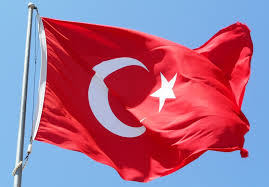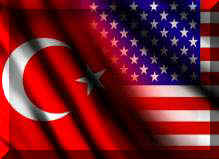By Ihasan Aktas, Daily Sabah
When Binali Yıldırım became prime minister and Turkish foreign policy was being severely criticized in the media, I made a prediction as an on-air guest at a TV channel. “President Recep Tayyip Erdoğan has not made a significant mistake in domestic politics,” I claimed. “Otherwise, he cannot obtain 50 percent public support. I expect that foreign policy will be conducted in a similarly meticulous manner.”
During the Syrian civil war, Turkey got into trouble due to the Syrian policies of its allies. However, thanks to Operation Euphrates Shield and its developing relations with Russia and Iran, Turkey has rapidly become a key power in the management of the Syrian crisis by paving the way for peace among the warring factions. While international powers were condemning Syria to a never-ending war, Turkey prevented the realization of imperialist agendas by defending the territorial integrity of the country.
Struggling in favor of balance, Turkey also took sides with Sunni powers against the imperialist aspirations of Iran. Shortly after, Turkey tactfully took sides with Iran against the political and economic siege laid against Qatar by Saudi Arabia, Egypt and the United Arab Emirates under the provocation of U.S. President Donald Trump. All these instances exemplify the multidimensional and multilateral foreign policy behaviors that Turkey should pursue.
In consequence of the rising xenophobia and racism in the countries of the European Union, Turkey’s relations with EU member states deteriorated due to the populist context of the European political elections in which Turkey was sometimes reconstructed as the common enemy of Europe. Yet, after all of the heated controversies between the political leaders within the EU and Turkey, EU member states have realized that Turkey is not an insignificant regional power that can safely be neglected. Turkish political leaders have reassured our country’s integration into the Western world. Today, those leaders are looking for ways to revitalize Turkish-European relations in the framework of common interests.
While the president was visiting Sudan, the prime minister had been in Saudi Arabia to break the ice in the Qatar crisis. Through the same constructive attitude, Turkey called for sobriety in Iran and underlined the significance of regional stability despite its multidimensional rivalry with its neighbor.
As Turkey’s present advanced state inspired the Arab Spring, and the struggle and balance of power in the international arena has become all the more penetrating, Turkish foreign policy realistically finds the right track. Turkey’s geopolitical position not only presents problems, but also opportunities that enable the pursuit of a multidimensional and multilateral foreign policy attitude.
Bearing a heavy historical responsibility for the Palestinian cause, Turkey approaches the issue beyond its national interests. As Israel’s mistreatment of the Palestinians echoes the Nazis’ persecution of Jews, Erdoğan’s courageous objection to Israel’s unlawful acts had been an exception in the midst of the silence of international powers.
As a result of U.S. President Donald Trump’s attempt to declare Jerusalem the capital of Israel, we realize that Turkey is not alone in protesting the unlawful acts of Israel and its supporter, the United States. Thus, Turkey’s righteous foreign policy won in the Jerusalem crisis.
Turkey’s triumph at the U.N. General Assembly in favor of the Palestinian cause also enables the initiation of a process of rapprochement between Turkish and European countries. By pursuing a multidimensional and multilateral foreign policy, Turkey is currently returning to the stage of foreign affairs with a much more healthy, prudent and meticulous approach.



















